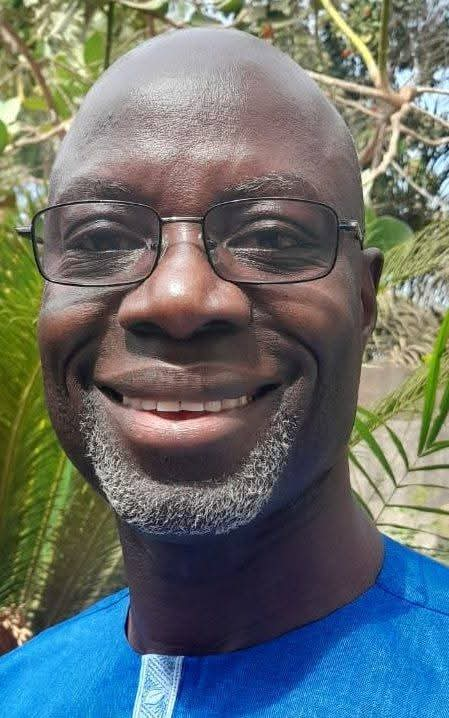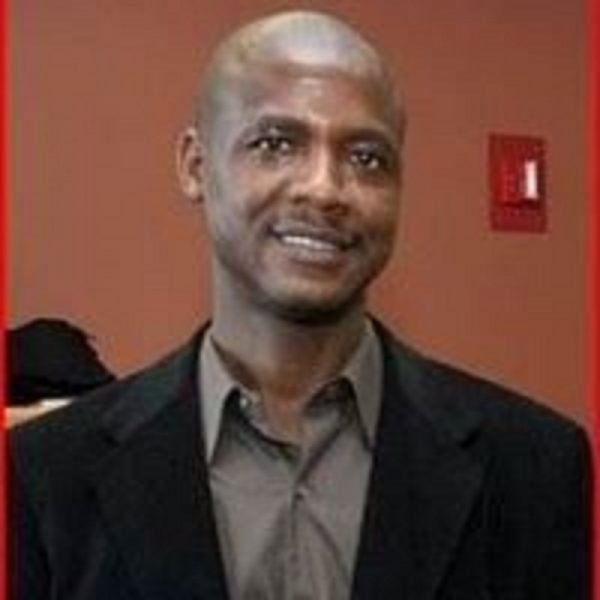There comes a moment when a journalist is called to do more than report—to resist, to preserve, to defy the tide of conformity.
Peter Gomez has lived in that moment all his life. Not by shouting louder, but by standing firmer. Not for fame, but for fidelity—to truth, to justice, to a better Gambia.
This is not just a tribute. It is a reckoning with those who fear independent minds. It is a mirror to the critics who mistake tribal allegiance for moral clarity. It is the case for Peter Gomez
The journalist who refused to bend, refused to flatter, refused to apologize for telling the truth.
On January 8, 2001, The Independent (Banjul) ran a headline that reverberated through Gambia’s media landscape: “As Jammeh’s Broom Sweeps Through Radio Gambia, Peter Gomez Sacked.”
Veteran journalist Peter Gomez, then principal producer at Radio Gambia’s news and current affairs department, was summarily dismissed on January 5. No reason was offered. The following day, The Independent published a follow-up:
“Peter Gomez was dismissed from GRTS after refusing to air a rejoinder implying that Radio Gambia misquoted President Jammeh on the Sharia issue.”
This is the same Peter Gomez who was sacked not for incompetence or misconduct, but for refusing to compromise the truth. For declining to retract a statement that, by all accounts, accurately reflected reality. For defending the sacred tenets of journalism against executive overreach.
From those harrowing days emerged a man who would become a paragon of Gambian journalism. He established a sports newspaper with support from The Independent and, later, helmed West Coast Radio with the gravitas and independence that earned him admiration across the political spectrum. His flagship program, Coffee Time with Peter Gomez, is now a benchmark of civic discourse, giving voice to government, opposition, civil society, and the everyday citizen. In his hands, radio became what state-owned media should have been—an instrument of public service broadcasting.
I’ve long admired Peter Gomez, both personally and professionally. Much of the criticism aimed at him—especially from tribalists and reactionary elements—is less about substance and more about discomfort with his audacity: his refusal to conform to entrenched norms or play to identity-based expectations.
Peter is unwavering in his dedication to freedom of expression and truth-telling. His commitment didn’t just shape journalism—it elevated it. More than a journalist, he’s a mentor, a steward of ethical storytelling, and a beacon for new generations. His words, steeped in conviction and eloquence, bear the hallmarks of mastery: a fluid orator, a generous collaborator, and a cultural pillar who built rather than tore down.
To know Peter was to know warmth, sincerity, and principle. His bright smile welcomed all, regardless of status or creed. He carried ethical responsibility with quiet grace, never chasing glory, always uplifting others.
In the philosopher Maurice Merleau-Ponty’s terms, Peter embodied the “truly serious man”—one who seeks substance over self-importance.
Peter’s legacy transcends broadcasting. His voice lives in the archives, his mentorship in the journalists he inspired, and his wisdom in the civic consciousness he helped cultivate. He’s never been one to follow the crowd. I’ve seen him defend the persecuted, the misunderstood, the unconventional. That kind of moral independence unnerves the guardians of conformity.
His wit, often misread by literalists, is more subtext than sarcasm. When challenged by digital trolls, he replies with clarity—sometimes stern, sometimes amused, always unflinching.
Independent-mindedness like Peter’s is rarely comfortable. It provokes. It stirs. But that’s the price of truth. Critics attacking him under the guise of tribalism or morality are often reacting to his refusal to submit to collective groupthink. Their digital “gangsterism” is symptomatic not of Peter’s excesses, but their own discomfort with principled dissent.
I stand with those who think differently. With the rare voices who challenge hypocrisy, not hide behind it. Peter Gomez is one of those voices. If the courage to speak the uncomfortable truth earns labels like “arrogant” or “narcissistic,” history shows those labels often fall upon the visionaries.

From a budding sports broadcaster to a towering figure in Gambian media, Peter has defined excellence. His program Sports File remains the gold standard in Gambian sports journalism—his 2010 coverage of the FIFA World Cup a case study in how local media can channel global spirit. He bridged continents with his storytelling, and cultivated a global Gambian listenership tuned into truth. His mentorship continues. Young reporters mentored by Peter have grown into editors, producers, and credible voices across institutions. He’s both the architect and the amplifier of new talent.
I enjoy the complex relationship he shares with his audience—his unapologetic interviews, his ability to challenge sacred cows, and his resistance to shallow tribal posturing. Whether discussing politics, culture, or controversy, Peter refuses to be boxed in. You don’t have to agree with every word he says. But you must recognize that he speaks them without fear. He isn’t always “neutral.” Nor should he be. But he’s never a hired mouthpiece. Peter never minces words. And in a time of distortion, that alone is revolutionary.
In a landscape where many echo what’s safe,
Peter Gomez spoke what’s right.
Where some yield to popularity,
He pursued principle, even when it cost him comfort.
Let them label him. Let them circle his name with mockery and malice.
History listens differently.
It listens for courage.
For integrity.
For voices like Peter’s.
We do not defend him because he’s flawless.
We defend him because he’s fearless.
Because he is proof that one voice, grounded in truth,
Can carry the weight of a thousand silences.





